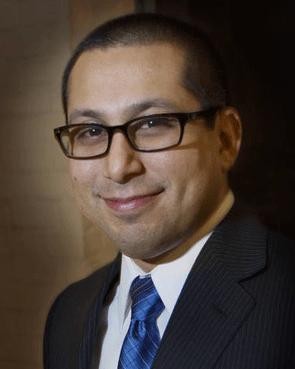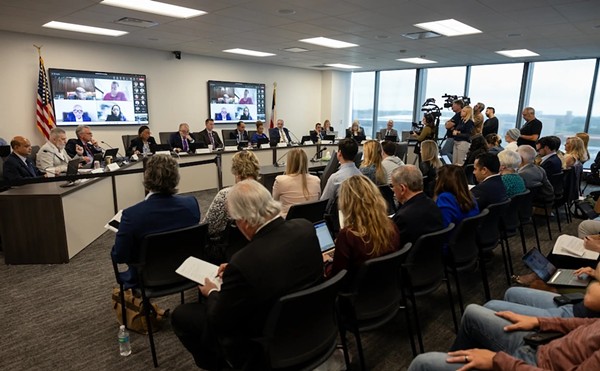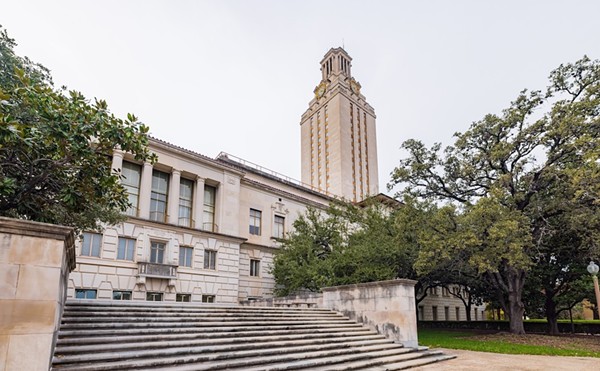While Bernal calls his plan the most aggressive crackdown on predatory lending yet in the state, it borrows from measures already passed by Austin and Dallas that have set off legal battles with the payday lending industry in those cities. Last year when Dallas passed an ordinance that required payday and auto title lenders register with the city and restricted loan amounts, industry trade group Consumer Service Alliance of Texas sued, claiming the ordinance conflicted with state law and limited access to credit. The group also sued Austin for its ordinance capping maximum loan amounts and restricting how often loans could be refinanced.
Here's what Bernal's proposed ordinance currently outlines:
- Limiting payday loans to 20% of the borrower's gross monthly income.
- Limiting auto title loans to the lesser of 3% of the borrower's gross annual income or 70% of the vehicle value.
- Limiting loans to no more than four installments or three rollovers or renewals (a rollover or renewal is defined as an extension of consumer credit made within seven days of the previous extension of credit).
- Requiring the proceeds from each installment or renewal to reduce the loan principal by 25%.
- Requiring that every contract be written in a language the borrower can understand, or be read in its entirety to any borrower who cannot read.
- Requiring the lender to provide to the borrower a form created by the city, which references non-profit agencies that provide financial education and agencies with cash assistance programs, and contains general information regarding extensions of consumer credit.
Throughout the debate in San Antonio, CSAT has argued cities don't have the authority to regulate the industry. Responding to questions from the Current via email Tuesday, CSAT Spokesman Rob Norcross claimed the new requirements would restrict consumer access to short-term credit and force borrowers toward higher-cost alternatives.
As to whether we'll see a lawsuit should Bernal's measure pass, Norcross wrote: "Depending on the final version of the ordinance, CSAT members may have to reluctantly consider litigation."
Although CSAT says it prefers the state, not individual cities, regulate payday lenders, the Lege has largely failed on that front, and consumer advocates say so-called reforms that managed to squeak through in 2011, like cost disclosures and reporting requirements, were merely window dressing. And payday money floods the Texas capital each time lawmakers take up the issue, as detailed by this report from Texans for Public Justice. According to the TPJ report, payday lenders spent at least $3.9 million lobbying lawmakers last session, and in the 2010 election cycle dished out nearly $1.4 million to Texas politicos.
With industry claiming a crackdown would eliminate the availability of small-dollar loans or require some lenders to close shop, and that we should wait for the state to pass regulations, Bernal Tuesday published an exhaustive response on former E-N editor Bob Rivard's website (the Rivard Report). With Bernal's permission, we re-post it here.
––
Making the Market Square: How a City Can Protect its Own
By Diego Bernal
The ordinance regulating payday and auto-title lending that the San Antonio City Council will vote on this Thursday, September 20th, is premised on two primary and personally held beliefs: One, the problems are real. Two, aside from the City, currently there is no other body to address them.
Said another way: We should, we can, so we will.
I’ve long been bothered by the cycle of debt and loss that people who use these services often fall into despite their best intentions. I recognize that there is a market for small-dollar-amount loans. The goal of the ordinance I am proposing is not to eliminate the option. The ordinance is intended, quite simply, to protect our most vulnerable citizens from falling into desperate financial straits by accepting loans that offer short-term cash and long-term debt.Many of these businesses use a combination of unconscionably high interest rates (we’ve seen up to 819%), unlimited rollovers and unforgivingly rigid and obtuse repayment structures to ensnare people into a state of perpetual obligation. (Why fill your cup once when you can drip the faucet for years?) To be clear, the regulations target the lenders, but the purpose is to protect the consumer.
Although we can write off some policy proposals as pure theater, offering a prophylactic solution to a non-existent problem (Voter ID, anyone?), the harm that befalls the hard-working and well-intentioned people of our city is not uncommon, and certainly not imaginary. In Texas, 75% of people who take out a payday loan are unable pay it back by the due date, and thus are forced to roll it over, meaning the entire debt remains despite money paid. More than half of these borrowers are forced, on average, to renew the loan three or more times, and four out of 10 consumers are forced to renew their loans five or more times before thy escape their debt.
Add to the mix the physical breadth of the industry. There are more than 250 payday storefronts in San Antonio. Put another way, for every Starbucks in Texas there are five payday or auto-title loan operations. Not surprisingly, they are deliberately clustered in poor, working-class neighborhoods, surrounded by aggressive advertising and promotional come-ons. Most, if not all, the telltale signs of “predatory lending” benchmarks are easy to spot, but hard to resist for someone with their back to the wall who knows of no other options.
In a city like ours, once we step back and takes stock of the situation, I believe we are compelled to act. Scour the earth for tools, pick them up and get to work.
If our position is unique it is only because of who we are, a municipality. I am well aware of the failure of leadership at the state level by those who control the political process in Austin. There certainly have been attempts to regulate the industry in the State Legislature, most recently by a heroic push led by state Rep. Joe Farias, D-San Antonio. But even as we wade into these less-charted waters on a city level, I’ve learned that the industry’s practices at home are complimented appropriately by their actions in Austin at the State Capitol.
In the last legislative session the payday loan industry spent more than $8 million to dispatch a broad and powerful lobby tasked with dismantling every meaningful piece of legislation designed to reel them in. (It is important to point out that the payday industry has thus far successfully maneuvered around state usury laws intended to eliminate predatory lending practices by making minor, but technically significant, changes to their business models. It’s an unmistakable gambit, one that keeps pried open many of the loopholes we are attempting to close.)
Notably, of the several measures that the well-funded lobby quashed in the last session, several of them did not address what I would call bread-and-butter industry issues like interest rates, rollover limits and the like. When I learned that they opposed and successfully defeated a proposed requirement that lenders provide information to consumers about the terms and conditions of the loans in Spanish(!!), any credence to their argument that they were simply misunderstood and wanted to be community partners all but vanished.
On the home front, after hours of research, conversations with council members who spearheaded parallel efforts in Austin and Dallas, surveying the public for personal experiences, receiving invaluable help from organizations like AARP and Texas Appleseed, and meeting with representatives from the industry, I am comfortable with San Antonio’s ordinance. Among its highlights:
* Payday loans would be limited to 20 % of borrower’s gross monthly income.
* Auto-title loans would be limited to the lesser of 3% of borrower’s gross annual income or 70% of the vehicle’s value.
* Such short-term loans would be limited to no more than four payment installments.
* Proceeds from each payment installment must account for a minimum 25% of the principal.
* Lenders must provide contracts in English and Spanish.
* Lenders must provide customers with a City of San Antonio-authored document that outlines elements of loan payback provisions, financial literacy resources and how to contact the City with complaints. The document will be in both English and Spanish.
Although this will be the most aggressive ordinance in Texas, in no way do these provisions result in any of the apocalyptic inevitabilities the industry has broadcast. Simply put, the ordinance does not eliminate the availability of small dollar loans, and does not require any storefront to close. Creating hysteria among their already vulnerable costumers is additional evidence of the industry’s true concerns.
Since we’re on the topic of honesty, allow me to emphatically reject industry pleas for more time, more conversation and concerns over compliance and preparedness. They’ve had plenty of time. Our ordinance looks very similar those already put in place in Dallas and Austin. The industry will find few elements in the proposed San Antonio ordinance that it has not been required to comply with elsewhere. Simply put, the industry has had ample opportunity to police itself and simply has not done so. If it really wanted to change it would have by now. If it agreed with part of an idea, but not all of it, as has been claimed in the past several months, we would see that component reflected in their current lending practices by now. For the most part, we do not. That’s not spin, just the truth.
I believe that, considering how long the ordinance has been in open discussion, the several meetings I’ve had with representatives, and the January 1, 2013 implementation date, the opportunity is ample.
Finally, to the oft-repeated argument that this is really an issue the state should address, I agree. It should, but it hasn’t. As more and more cities across Texas tackle the problem in one manner or another, the overall impression should be that this is a priority in the upcoming legislative session. We have some great champions from San Antonio. We need to support them as they take this message to Austin.
Until substantive state-level reform arrives, cities must fend for themselves. We are duty-bound to protect our most vulnerable residents. Those that, between their families and friends, cannot muster $100, are arguably desperate. No business should exploit that desperation. Although we do not impose any restriction on the initial $100 loan in that example, if the resident cannot pay it when it is due, our ordinance immediately switches on the light at the end of the tunnel. We aren’t stopping anyone from getting into a payday loan contract, we’re just ensuring they can pay their way out.
We have a tremendous city and a tremendous City Council- Mayor Castro, Taylor, Ozuna, Salda?a, D. Medina, Soules, Chan, Williams, C. Medina and Lopez. This is the group that will get it done. I’m proud to play my part. Thanks for the opportunity.
Diego Bernal is the District One Councilman for the City of San Antonio. You can find him onFacebook, or follow him at @D1egoBernal.



















